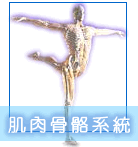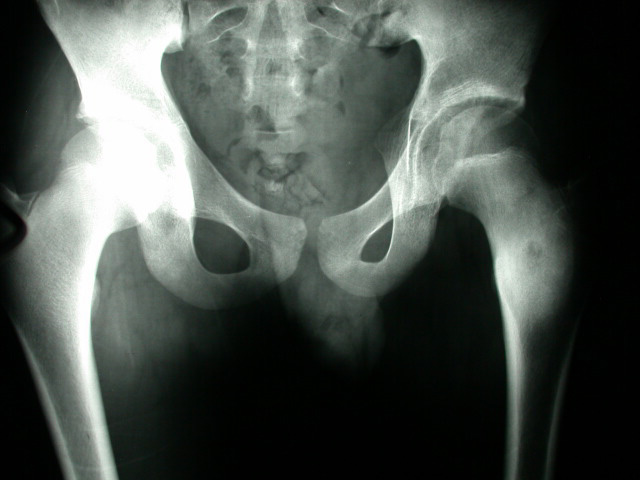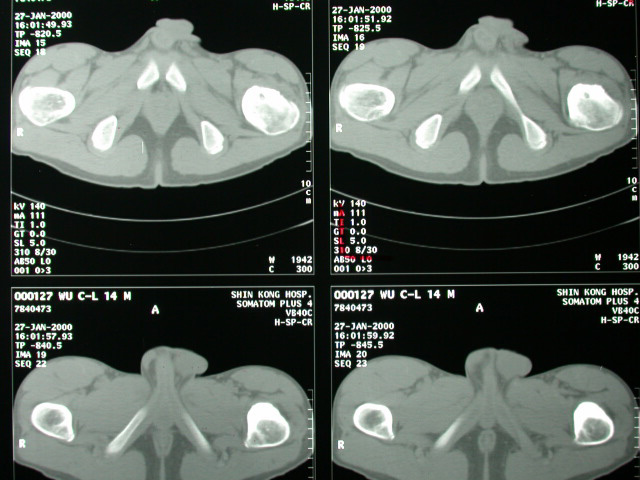History:
A 12 y/o boy suffered from medial thigh pain (left) that is worse
at night but which is relieved by aspirin and nonsteoidal anti-inflammatory
drugs.
Questions:
1. What are the findings?
2. What is the differential diagnosis?
3. What is the diagnosis?
Answers:
1. Plane radiography of the pelvis and left hip: A radiolucent nodule
with reactive sclerosis near the lesser trochanter of the left femur.
CT of the bilateral upper thighs without contrast: An intracortical
radiolucent nodule (< 1 cm) with exuberant reactive sclerosis
at the near the lesser trochanter of the left femur.
2. Osteoid osteoma, stress fracture, Brodie's abscess, osteosarcoma
3. Osteoid Osteoma
Discussion
The history and radiologic appearance of this lesion make the diagnosis
of osteiod osteoma. Stress fracture may occur at this particular
location and may be evident as cortical thickening, but there should
not be a focal lesion at the center of the cortical reaction, and
pain would be relieved at night but worse with activity during the
daytime. Osteoid osteoma are relatively common bone-forming tumor
that consists of a circumscribed nodule of woven bone and osteoid
(called the nidus) and a surrounding reactive zone of thickened
cortical or trabecular bone and loose fibrovascular tissue. Patients
complain of a peculiar pain syndrome that is virtually unique among
bone tumors: nocturnal pain that is relieved by aspirin and other
prostaglandin inhibitors. Unlike other bone tumor, osteoid osteomas
have abundant nerve fibers, particularly in the reactive zone, and
this innervation appears to correlate with the pain syndrome. The
reactive zone results in a flare of bone and soft tissue edema on
MR imaging, and there is typically an intense reactive periosteal
response that is disproportionate to the small size of the nidus
(1 cm or less). Treatment of osteoid osteoma is ablation, either
percutaneously or by surgery. Cost and morbidity are both lower
using CT-guided percutaneous ablation rather than open surgery.
Reference
1. J. X. O'Connell, S. S. Nanthakumar, G. P. Nielsen, A. E. Rosenberg.
Osteoid osteoma: the uniquely innerverted bone tumor. Mod Pathol
1998; 11: 175-80
|




